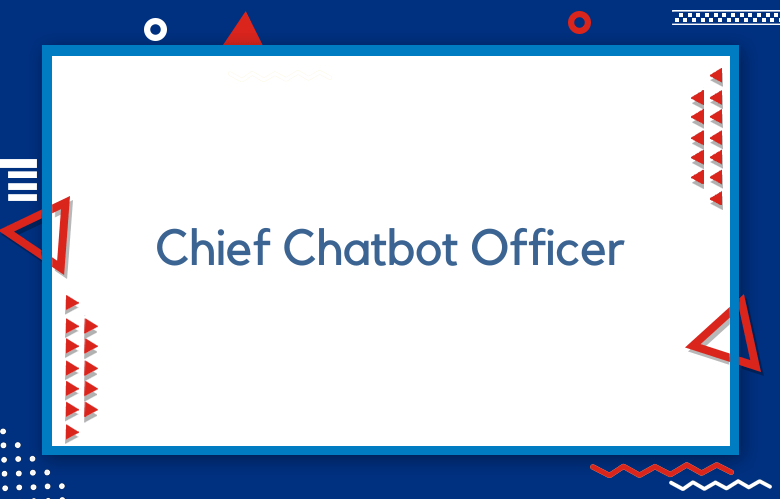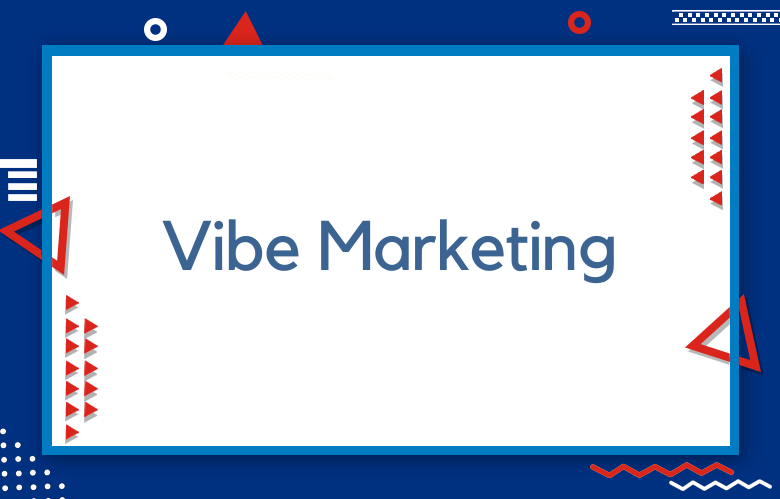Full Stack AI Marketing: Mastering Integration
Full-stack AI marketing is changing the game. It combines various technologies to create more innovative marketing strategies. Businesses are using data-driven insights to connect with customers better than ever. The rise of AI tools has enabled companies to automate tasks and personalize experiences. This shift began in the early 2000s, as digital marketing evolved rapidly. Today, marketers can analyze behavior patterns and predict trends using AI and innovative strategies.
With full-stack AI marketing, brands gain a competitive edge with innovative strategies. They streamline processes and enhance customer engagement, which not only saves time but also boosts sales. Understanding this trend is crucial for anyone in the marketing field. Embracing these innovations can lead to significant growth and success.
Key Takeaways
- Full-stack AI marketing combines multiple marketing strategies to create a seamless customer experience, so consider integrating various channels for better results.
- Embrace AI tools to analyze data and predict trends, enhancing your marketing strategies and keeping you ahead of competitors.
- Look at successful B2B tech leaders for inspiration; their case studies can provide valuable insights into implementing full-stack AI marketing effectively.
- Utilize recommended resources like online courses and webinars to know the trends and tools in AI marketing.
- Regularly evaluate your marketing processes to identify areas for optimization, ensuring that you remain competitive in a fast-paced market.
Understanding Full Stack Marketing
Basics of Full Stack
Full-stack marketing combines various marketing skills and strategies, including content creation and analytics. This approach is significant in today’s digital landscape because it allows marketers to adapt quickly. A full-stack marketer understands multiple disciplines. They can manage social media, SEO, email campaigns, and more.
A full-stack marketer’s skill set includes technical skills, creative thinking, and analytical abilities. These marketers know how to use tools like Google Analytics and social media platforms effectively. A full-stack approach enhances overall marketing effectiveness by providing a cohesive strategy. Marketers can see the bigger picture and make informed decisions.
Role of AI in Marketing
AI is transforming traditional marketing practices in many ways. It automates repetitive tasks, freeing up time for creative work. This capability helps marketers better understand trends and customer behavior.
Personalization is another area where AI shines. It allows brands to deliver their messages to individual customers at scale. For example, AI can recommend products depending on past purchases, creating a more engaging customer experience. Data-driven decision-making becomes easier with AI tools. Marketers can rely on insights from AI to shape their strategies.
Benefits of Integration
Integrating AI into marketing strategies offers several advantages. First, it improves efficiency in various tasks. Automated systems handle scheduling posts or sending emails, saving time and reducing human error.
Second, AI enhances productivity by streamlining workflows. Marketers can focus on high-impact activities rather than mundane tasks. Third, AI provides deeper customer insights through data analysis.
AI’s Impact on Modern Strategies
Customer Demands and AI
Customers today expect a high level of personalization. They want brands to know their preferences and needs, and this expectation grows as technology advances. For example, customers often receive product recommendations based on their browsing history.
Marketers can use AI to meet these demands. AI analyzes data from various sources. It helps marketers better understand customer behavior, enabling them to create tailored experiences for each individual. Anticipating customer needs becomes easier with AI tools, and marketers can respond quickly to changes in preferences.
Interconnectedness in Marketing
A cohesive marketing strategy is essential. Brands must connect their efforts across multiple channels. Customers interact with business brands through websites, social media, and email. Each channel must work together to create a seamless experience.
AI plays a significant role here. It enhances communication between different marketing functions. With AI, teams can share insights quickly, leading to more effective campaigns. Data also drives interconnected marketing efforts. Marketers can adjust strategies in real time by analyzing customer interactions across platforms.
AI-driven Decision Making
AI tools enhance the decision-making process in marketing. They provide insights that help marketers make informed choices. For example, predictive analytics uses historical data to forecast trends, which shapes future marketing strategies.
Real-time data also significantly impacts decisions. Marketers can instantly see what works and what doesn’t, allowing them to pivot quickly if necessary. For example, if a campaign underperforms, they can adjust it based on current data.
Upskilling and Process Optimization
Enhancing Team Skills
Continuous learning is essential in marketing. Teams must embrace new skills to stay competitive. AI can significantly augment team capabilities. For instance, understanding data analytics helps marketers make informed decisions.
Collaboration between technical and creative members leads to better results. Technical experts can explain AI tools, while creatives can apply them effectively. This teamwork enhances overall project quality.
Streamlining Internal Processes
AI can automate repetitive marketing tasks like email responses and social media posting. This saves time and allows teams to focus on strategic work.
Integrating AI into project management improves workflows. With AI assistance, tools like Asana or Trello can become more efficient. These systems help track progress and deadlines automatically. As a result, teams execute projects faster and with fewer errors.
Tools for Effective Training
Several AI tools are available for training marketing teams. Platforms like HubSpot offer courses on using AI in marketing. These resources provide valuable knowledge and skills.
Hands-on experience is crucial when learning about AI technologies. Teams should practice using these tools in real scenarios. Simulation tools also offer practical learning experiences without risks. They allow teams to experiment and learn from mistakes safely.
Learning from B2B Tech Leaders
Unique Marketing Initiatives
Marketers should explore innovative AI-driven campaigns. These campaigns can offer fresh perspectives on reaching audiences. Creativity plays a vital role in using AI for unique marketing solutions. For example, a tech company launched an AI chatbot that personalizes customer interactions. This initiative increased engagement by 30%.
Another successful case involved targeted ads powered by machine learning. The brand analyzed user behavior to tailor messages effectively, and conversion rates jumped significantly. Such examples show how creativity and technology can drive impactful marketing.
Case Studies and Insights
Real-world examples illustrate how brands successfully implement AI in marketing. One notable case is Coca-Cola, which used AI for personalized content creation. The results were impressive, with higher customer satisfaction scores reported.
Another example comes from Netflix, which employs AI to recommend shows based on viewing habits. This strategy has led to increased viewer retention and loyalty. Analyzing these outcomes reveals actionable insights for marketers. They should focus on understanding their audience better through data.
Brands that struggled often did so due to poor data quality or lack of clear goals. Before diving into AI, marketers must ensure they have the right tools and strategies.
Lessons from Industry Giants
Leading companies provide valuable lessons in embracing AI marketing. For instance, Amazon has effectively integrated AI to enhance customer experiences. Their recommendation engine drives significant sales growth by suggesting products customers might like.
Companies must invest in clean data for effective AI implementation. Businesses should prioritize training their teams on new technologies to ensure everyone understands how to leverage AI effectively.
Common pitfalls include underestimating the time needed for integration. Many companies need proper planning to adopt AI, which can lead to challenges later. Learning from industry experiences helps avoid these mistakes.
Recommended Resources
Books and Blogs
Reading is key for marketers interested in AI. Many books provide valuable insights into AI in marketing. “Artificial Intelligence for Marketing” by Jim Sterne is a great start. It explains how AI can transform marketing strategies.
Another notable author is Brian Solis. His blog offers fresh perspectives on digital transformation. Marketers should explore various voices to understand the entire landscape of AI’s impact.
Staying informed through diverse materials helps marketers adapt quickly to changes. This knowledge can enhance their strategies and improve results.
Newsletters and Websites
Newsletters are excellent for keeping up with trends. “The AI Marketing Insider” shares updates on the latest developments in AI marketing. Subscribing to this newsletter ensures marketers receive timely information.
Websites like HubSpot and MarketingProfs also offer valuable resources. They provide articles, tools, and case studies that showcase successful AI applications. Marketers can learn from real-life examples and apply these lessons to their work.
Platforms that share best practices are essential for growth. They help marketers stay ahead in a rapidly changing environment.
Videos and Podcasts
Videos can simplify complex AI concepts. YouTube channels like “Marketing AI Institute” feature content that discusses AI topics for marketers. These videos make learning engaging and accessible.
Podcasts are another great resource. Shows like “Marketing Over Coffee” often discuss AI applications in real-world scenarios. Industry experts share their experiences, which can inspire new ideas.
Engaging with multimedia content deepens understanding. Marketers should take advantage of these formats to grasp the nuances of AI in their field.
Closing Thoughts
Full-stack AI marketing is a game changer. It combines various AI-powered marketing strategies to help you reach your goals faster. Understanding how to leverage these tools allows you to optimize your processes and enhance your skills. Learning from industry leaders gives you a competitive edge, so don’t take advantage of those insights.
Now’s the time to dive in. Explore the recommended resources and start implementing what you’ve learned. The future of marketing is here, and it’s up to you to harness its potential. Get started today and transform your marketing efforts!
Frequently Asked Questions
What is full-stack AI marketing?
Full-stack AI marketing integrates artificial intelligence across all marketing channels and processes. It enhances data analysis, customer targeting, and campaign optimization, providing a comprehensive approach to modern marketing strategies.
How does AI impact modern marketing strategies?
AI revolutionizes marketing by automating tasks, personalizing customer experiences, and providing insights through data analysis. This leads to more effective campaigns, improved ROI, and customer engagement.
What skills are needed for full-stack AI marketing?
Key skills include data analysis, machine learning, content creation, SEO, and understanding consumer behavior. Upskilling in these areas enhances your ability to implement full-stack AI strategies effectively.
How can businesses optimize their processes with AI?
Businesses can use AI tools to automate repetitive tasks, analyze customer data, and predict market trends. This streamlines operations, reduces costs, and improves decision-making processes.
What can B2B tech leaders teach us about AI marketing and technology trends?
B2B tech leaders often leverage advanced analytics and customer segmentation to drive their strategies. Learning from their successes can help other businesses adopt similar practices for enhanced performance.
Where can I find resources on full-stack AI marketing?
Recommended resources include online courses on platforms like Coursera or Udemy, industry blogs, webinars, and books on digital marketing and AI applications in business.
Why should I consider full-stack AI marketing for my business? It would allow me to provide personalized customer experiences, develop innovative strategies, and leverage technology for clients.
Implementing full-stack AI marketing allows for a holistic approach to effectively reaching customers. It maximizes efficiency and helps craft personalized experiences that boost engagement and sales.



